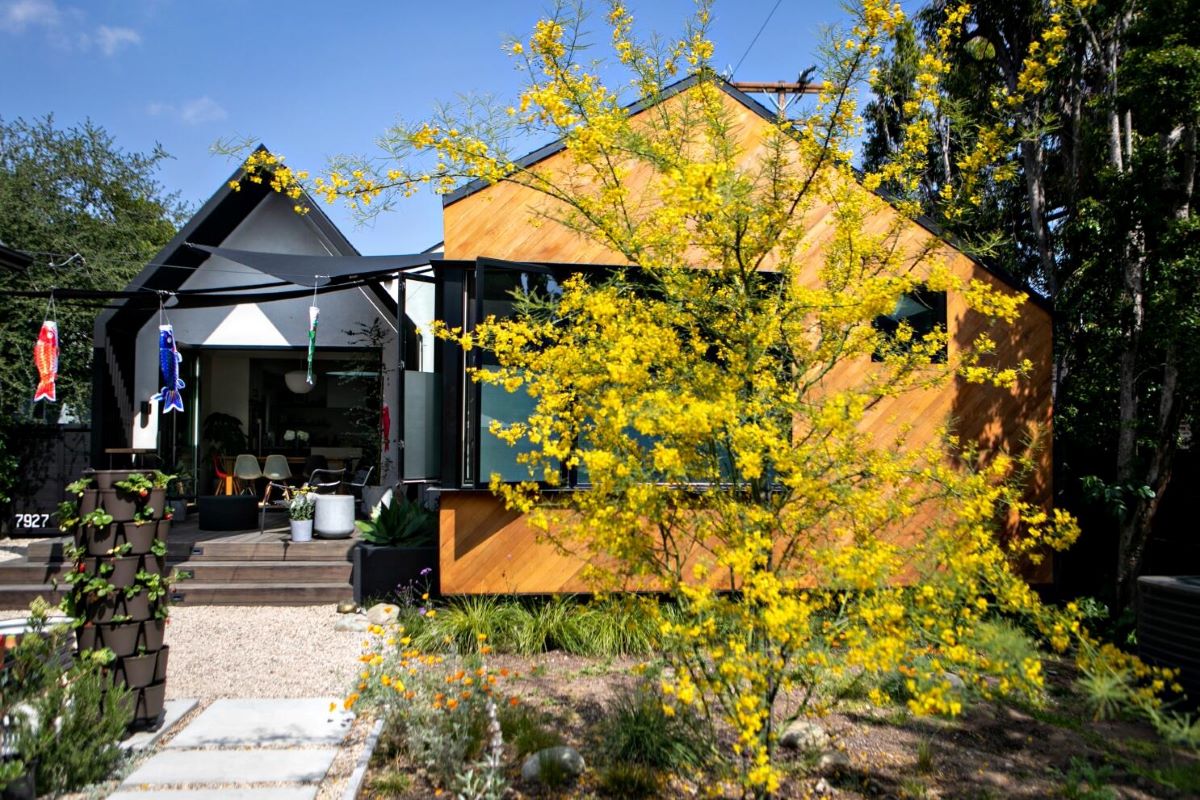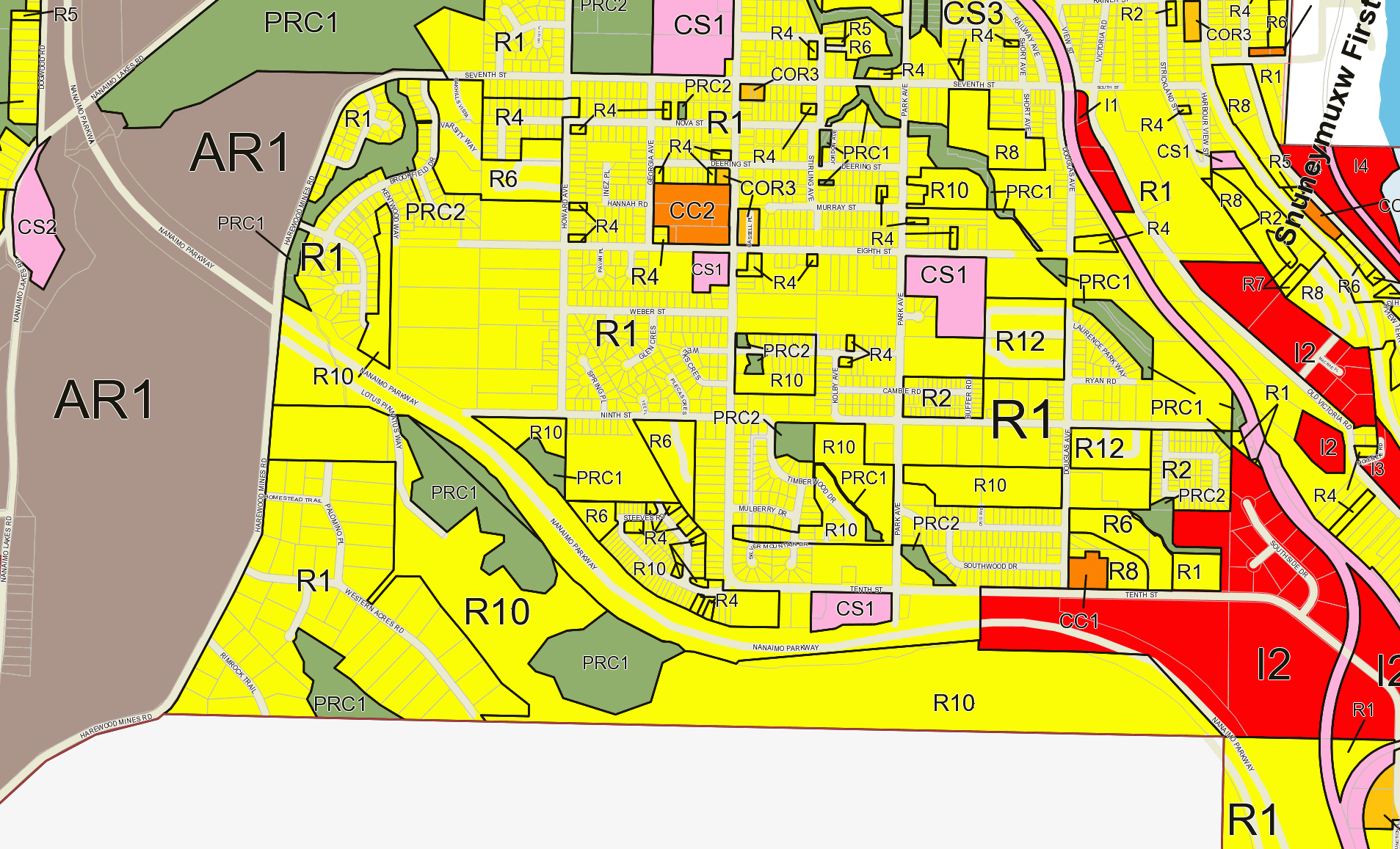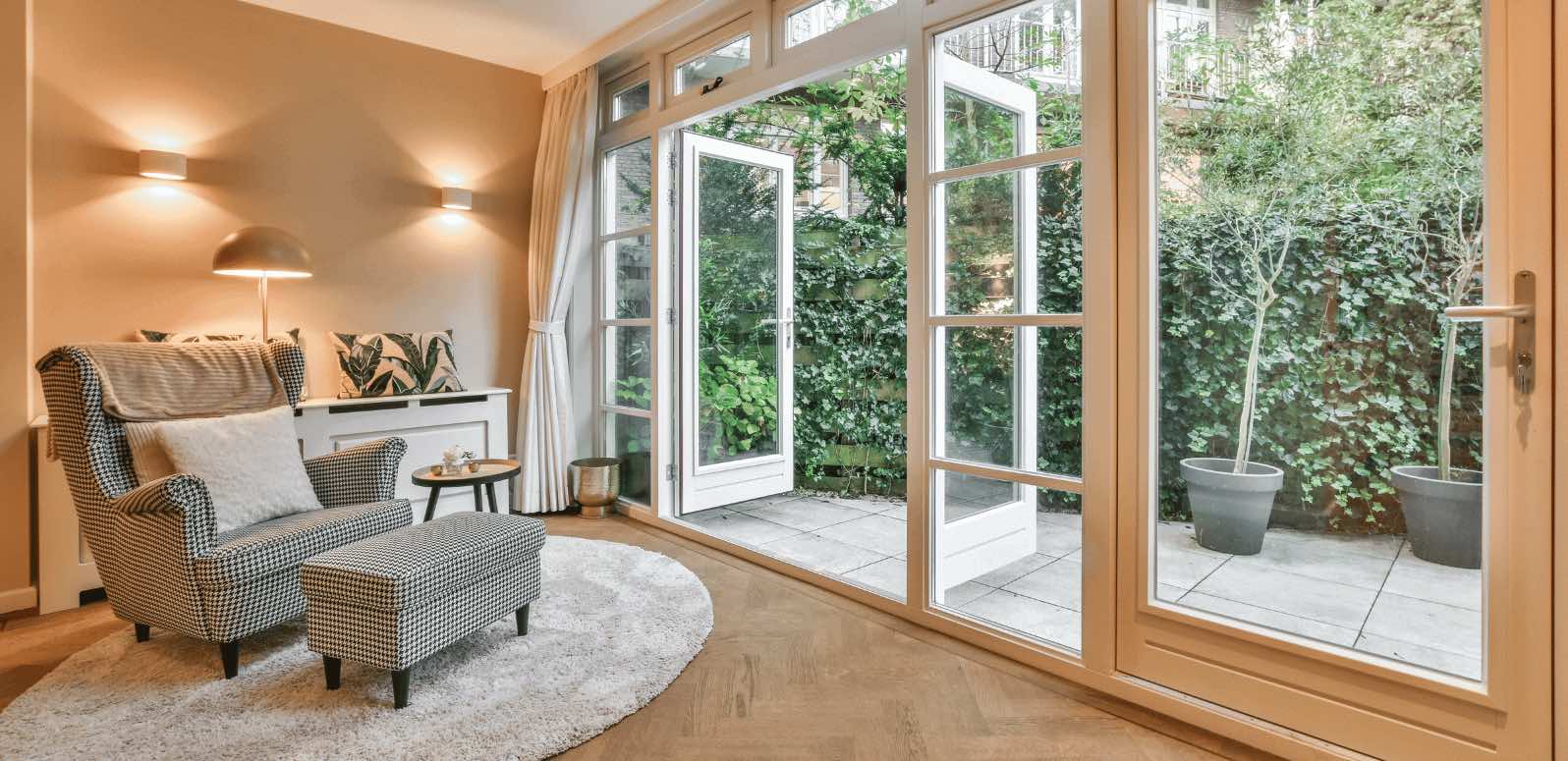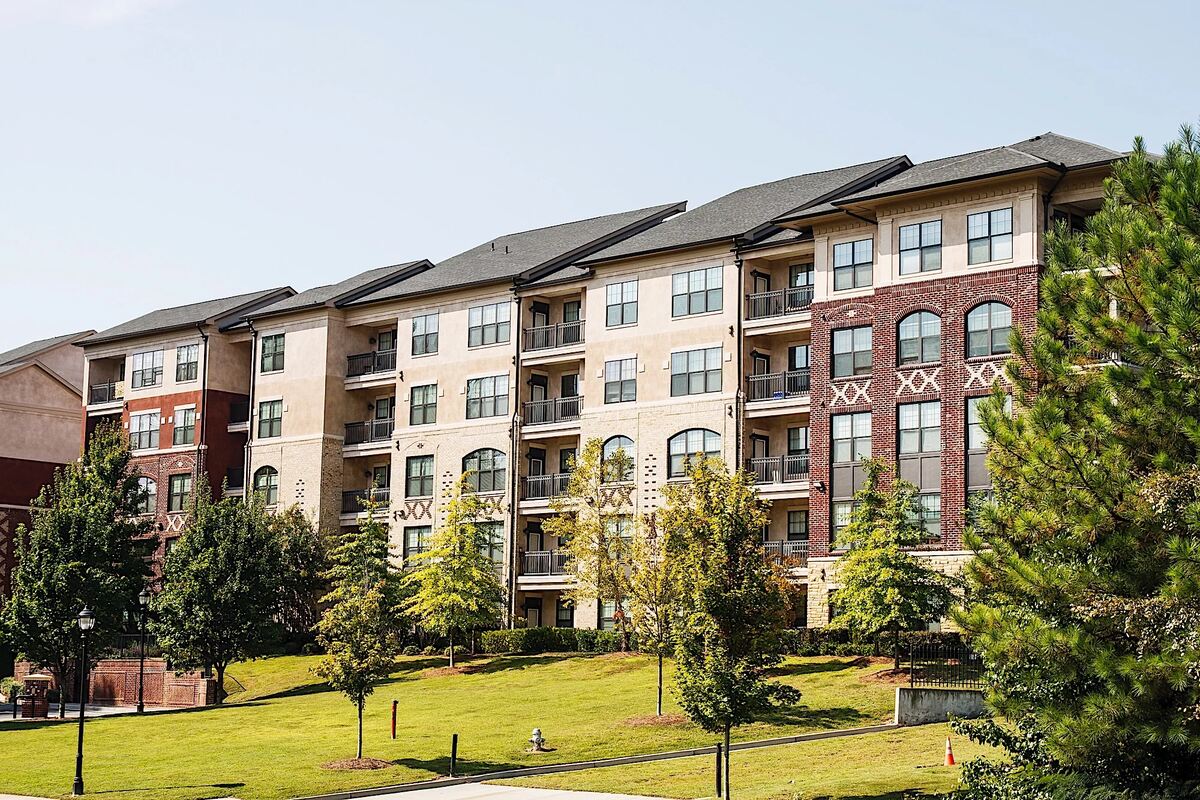Home>Articles>By Adding An ADU, Real Estate Values Can Be Substantially Impacted


Articles
By Adding An ADU, Real Estate Values Can Be Substantially Impacted
Modified: December 7, 2023
Discover how adding an ADU to your property can dramatically increase real estate values with informative articles on this valuable investment opportunity.
(Many of the links in this article redirect to a specific reviewed product. Your purchase of these products through affiliate links helps to generate commission for Storables.com, at no extra cost. Learn more)
Introduction
With the ever-growing demand for housing and the need for additional living space, homeowners are increasingly turning to Accessory Dwelling Units (ADUs) as a solution. ADUs, also known as granny flats, in-law suites, or backyard cottages, are secondary dwellings that can be added to an existing property. These separate living spaces provide homeowners with the opportunity to maximize their property’s potential while also offering flexible housing options.
ADUs not only provide benefits for homeowners, but they also have a significant impact on real estate values. By adding an ADU to your property, you can potentially enhance its worth and attract a wider range of buyers or renters. In this article, we will explore how ADUs can substantially impact real estate values and provide valuable insights into the factors that influence these values.
Furthermore, we will discuss the benefits of adding an ADU to your property, as well as the potential drawbacks to consider. Lastly, we will provide tips on maximizing real estate values with an ADU to help homeowners make informed decisions when considering this investment.
Key Takeaways:
- Adding an ADU to your property can substantially increase real estate values by providing rental income potential, expanded market appeal, and adaptability to changing needs, attracting a wider range of buyers or renters.
- To maximize real estate values with an ADU, prioritize practical design, high-quality materials, separate access, outdoor living spaces, ample parking, energy efficiency, effective marketing, and staying informed about local regulations.
Understanding ADUs
Before delving into the impact of ADUs on real estate values, let’s first establish a clear understanding of what ADUs are. ADUs are self-contained living spaces that are either attached or detached from the primary residence on a property. These units can range from converted garages, basement apartments, or separate structures built in the backyard.
ADUs typically include all the essential amenities found in a traditional home, such as a bedroom, bathroom, kitchen, and living area. Depending on local regulations and zoning laws, ADUs may have size restrictions and specific requirements, including parking spaces and separate access points.
One of the main attractions of ADUs is their versatility. These units can serve as housing for family members, extended guests, or can be rented out to generate additional income. ADUs can also offer homeowners the opportunity to downsize and live in the smaller unit while renting out the primary residence.
ADUs provide a practical solution to the housing crisis, allowing for increased housing density without the need for expansive developments. They offer an affordable and sustainable housing option that can be quickly implemented on existing properties.
It is crucial to understand the local regulations and zoning laws governing ADUs in your area before considering adding one to your property. Each municipality may have different requirements, including obtaining permits, adhering to building codes, and ensuring compliance with occupancy restrictions.
Now that we have a clear understanding of what ADUs are, let’s explore how these units can significantly impact real estate values.
The Impact of ADUs on Real Estate Values
Adding an ADU to your property can have a substantial impact on real estate values. When properly planned and executed, ADUs can increase the marketability and desirability of a property, resulting in higher property values. Here are a few key ways in which ADUs can positively influence real estate values:
- Rental Income Potential: ADUs provide homeowners with the opportunity to generate additional rental income. This income stream can significantly increase the property’s value, as it appeals to investors and potential buyers looking to offset their mortgage or supplement their monthly income.
- Expanded Market Appeal: Having an ADU on your property opens up a wider range of potential buyers or renters. ADUs attract various demographics, including multi-generational families, young professionals, or empty nesters. This increased market appeal can drive up the demand for your property, resulting in higher property values.
- Flexibility and Versatility: The presence of an ADU offers flexibility in living arrangements. Homeowners can choose to live in either the primary residence or the ADU, depending on their preferences. This versatility appeals to buyers who may be interested in shared living spaces or separate units for extended family members.
- Increased Property Size: By adding an ADU to your property, you effectively increase the available living space. A larger property size can contribute to higher property values since buyers or renters are willing to pay a premium for more square footage.
- Adaptability to Changing Needs: ADUs provide homeowners with the flexibility to adapt their living arrangements to changing needs. For example, if a homeowner’s elderly parents require assisted living, the ADU can serve as a comfortable and convenient solution. This adaptability enhances the appeal of the property and can positively impact its value.
It is important to note that the positive impact of ADUs on real estate values may vary depending on the local real estate market, neighborhood, and overall demand for housing in the area. Consulting with a local real estate professional or appraiser can provide valuable insights specific to your location.
Now that we understand the impact of ADUs on real estate values, let’s explore the factors that influence these values.
Factors that Influence Real Estate Values with ADUs
When considering the impact of ADUs on real estate values, several factors come into play. These factors can significantly influence how an ADU contributes to the overall value of a property. Let’s take a closer look at some of the key factors:
- Location: The location of a property plays a crucial role in determining its value, and this holds true for properties with ADUs as well. Properties located in desirable neighborhoods or areas with high demand for housing tend to command higher prices.
- Size and Layout: The size and layout of the ADU can impact its contribution to the property’s value. A well-designed and spacious ADU with a functional layout will generally add more value compared to a smaller or poorly laid-out unit.
- Quality of Construction: The quality of construction and craftsmanship of the ADU can have a significant impact on its perceived value. A well-built ADU with high-quality materials and finishes is likely to add more value than one that is constructed with lower-quality materials.
- Amenities and Features: The amenities and features of an ADU can also influence its value. Upgrades such as modern appliances, energy-efficient systems, and attractive landscaping can enhance the desirability of the unit and contribute to its value.
- Separate Access and Privacy: ADUs that have separate access points and offer privacy to both the primary residence and the secondary unit tend to be more attractive to buyers or renters. The ability to have independent living spaces can add value to the property.
- Local Zoning Laws and Regulations: The local zoning laws and regulations in your area can impact the feasibility and value of an ADU. Some municipalities may have restrictions on the size, occupancy, or rental of ADUs, which can limit their value potential.
It is important to remember that these factors are not exhaustive, and each property may have unique considerations that could impact its value. Consulting with a local real estate professional or appraiser can provide valuable insights into the specific factors that influence real estate values with ADUs in your area.
Now that we have examined the factors that influence real estate values with ADUs, let’s explore the benefits of adding an ADU to your property.
When adding an ADU to a property, consider the local zoning laws, potential rental income, and the impact on property taxes. ADUs can increase property value but require careful planning.
Benefits of Adding an ADU to Your Property
Adding an Accessory Dwelling Unit (ADU) to your property offers numerous benefits that go beyond just increasing real estate values. Let’s explore some of the key advantages of adding an ADU:
- Additional Rental Income: One of the primary benefits of having an ADU is the potential for additional rental income. By renting out the ADU, homeowners can offset their mortgage or generate a steady stream of passive income.
- Flexibility for Multigenerational Living: ADUs provide a versatile housing option for multigenerational families. Whether it’s accommodating aging parents, providing a space for adult children, or having a separate unit for guests, ADUs offer the flexibility to cater to different living arrangements within the same property.
- Increased Property Value: Adding an ADU can significantly increase the value of your property. The additional living space, rental income potential, and expanded market appeal can attract more buyers and result in a higher sales price.
- Affordable Housing Solution: ADUs contribute to affordable housing solutions by adding more inventory to the market. These units are often more affordable than standalone homes or apartments, providing an affordable housing option for renters or buyers.
- Minimal Environmental Impact: ADUs are regarded as a sustainable housing option due to their smaller size and resource-efficient design. They often have a smaller carbon footprint, consume fewer resources, and promote more efficient land use, making them an environmentally friendly choice.
- Additional Space for Home Office or Studio: An ADU can serve as a dedicated space for a home office, art studio, or creative workspace. Having a separate unit allows for a quiet and private work environment, increasing productivity and work-life balance.
It’s essential to consider these benefits in conjunction with the specific regulations and requirements in your area. Some municipalities may have specific rules regarding rented ADUs, occupancy limits, or parking requirements, so it’s crucial to familiarize yourself with the local guidelines before pursuing an ADU project.
Now that we understand the benefits of adding an ADU, let’s consider potential drawbacks that homeowners should be aware of.
Potential Drawbacks of Adding an ADU to Your Property
While there are numerous benefits to adding an Accessory Dwelling Unit (ADU) to your property, it’s important to consider the potential drawbacks as well. Here are some factors to keep in mind:
- Cost of Construction: Building an ADU can be a significant investment. Construction costs can vary depending on the size, quality of materials, and local building regulations. Homeowners should carefully evaluate the financial feasibility of adding an ADU before proceeding with the project.
- Impact on Outdoor Space: Adding an ADU to your property may require sacrificing some outdoor space. This can impact the overall aesthetic appeal of your property and limit the available recreational or landscaping area.
- Additional Maintenance and Upkeep: Having an ADU means additional maintenance responsibilities. Homeowners must consider the upkeep of the secondary unit, along with the primary residence. This includes regular maintenance, repairs, and potential vacancy periods in the rental unit.
- Zoning and Regulatory Constraints: Local zoning laws and regulations can impose restrictions on ADUs, such as size limits, parking requirements, and occupancy restrictions. Homeowners should research and understand these constraints before proceeding with an ADU project.
- Increased Utility and Service Costs: An ADU requires separate utility connections, which can result in increased utility costs for homeowners. Additionally, homeowners may need to consider providing additional services, such as trash collection and landscaping, that can add to the ongoing expenses.
- Neighborhood Concerns and Community Perception: Some neighborhoods may have concerns about the presence of ADUs, such as increased traffic, parking congestion, or changes to the neighborhood’s character. It’s important to consider the potential impact on the community and address any concerns that may arise.
It’s crucial for homeowners to carefully consider these potential drawbacks and weigh them against the expected benefits before deciding to add an ADU to their property. Conducting thorough research, consulting with local authorities, and seeking advice from real estate professionals can help homeowners make informed decisions.
Now that we’ve explored the potential drawbacks, let’s discuss some tips for maximizing real estate values with an ADU.
Tips for Maximizing Real Estate Values with an ADU
If you’re considering adding an Accessory Dwelling Unit (ADU) to your property to maximize real estate values, here are some valuable tips to help you make the most out of this investment:
- Plan for Practical Design: When designing your ADU, focus on creating a practical and functional space. Consider the needs and preferences of potential renters or buyers, and design the unit accordingly. Optimize the layout to maximize space utilization and ensure that the unit is comfortable and efficient.
- Use High-Quality Materials and Finishes: To enhance the value and longevity of your ADU, invest in high-quality materials and finishes. This not only adds aesthetic appeal but also helps to attract tenants or buyers who appreciate quality craftsmanship.
- Prioritize Separate Access and Privacy: ADUs with separate access points and privacy features are highly desirable. Consider designing the ADU with a separate entrance and outdoor space, allowing occupants to enjoy their own privacy and independence.
- Create Outdoor Living Spaces: Don’t disregard the importance of outdoor living areas. Design and enhance the outdoor spaces surrounding the ADU to create an attractive and inviting ambiance. This can include adding a patio, deck, or landscaped gardens, which can increase the overall appeal and value of the property.
- Ensure Ample Parking: Parking can be a significant concern for potential renters or buyers. Plan for adequate parking spaces for both the primary residence and the ADU. If possible, provide designated parking areas to alleviate any parking-related issues in the neighborhood.
- Consider Energy Efficiency: Incorporate energy-efficient features and appliances in your ADU to reduce utility costs and attract eco-conscious tenants or buyers. This can include energy-efficient windows, insulation, solar panels, and energy-saving appliances, which not only add value but also contribute to a sustainable living environment.
- Market and Advertise Effectively: When it comes to renting or selling the property with an ADU, effective marketing is key. Highlight the unique features and benefits of the ADU, such as the additional income potential, flexible living arrangements, or the affordability compared to other housing options. Use professional photography and targeted marketing strategies to reach the right audience.
- Stay Informed about Local Regulations: Stay up-to-date with the local regulations and zoning laws that govern ADUs in your area. This includes any changes or updates that may affect the operation, rental, or future sale of the ADU. Compliance with the regulations is essential to maximize the value and marketability of the property.
By following these tips, you can enhance the value of your property with an ADU and attract potential buyers or renters who appreciate the benefits offered by this additional living space.
Now that we’ve covered the tips for maximizing real estate values with an ADU, let’s wrap up our discussion.
Conclusion
Adding an Accessory Dwelling Unit (ADU) to your property can have a substantial impact on real estate values. ADUs offer homeowners an opportunity to maximize their property’s potential, increase rental income, and attract a wider range of buyers or renters. However, there are several factors to consider when adding an ADU, including the costs, regulations, and potential drawbacks.
Understanding the local zoning laws and regulations is crucial before embarking on an ADU project. It is also important to carefully weigh the benefits and potential drawbacks associated with ADUs to make an informed decision about whether it is the right investment for your property.
By following the tips for maximizing real estate values with an ADU, such as thoughtful design, high-quality materials, functional layouts, and marketing efforts, homeowners can increase the overall value and desirability of their property.
It is essential to consider the specific factors that influence real estate values in your area, such as location, size, amenities, and local market demand. Consulting with real estate professionals and appraisers can provide valuable insights tailored to your specific location and circumstances.
In conclusion, adding an ADU to your property can be a beneficial investment that not only increases real estate values but also offers flexible housing options, rental income potential, and the ability to adapt to changing needs. By carefully planning, designing, and considering the market dynamics, homeowners can maximize the benefits of an ADU and position their property for long-term success in the real estate market.
Frequently Asked Questions about By Adding An ADU, Real Estate Values Can Be Substantially Impacted
Was this page helpful?
At Storables.com, we guarantee accurate and reliable information. Our content, validated by Expert Board Contributors, is crafted following stringent Editorial Policies. We're committed to providing you with well-researched, expert-backed insights for all your informational needs.















0 thoughts on “By Adding An ADU, Real Estate Values Can Be Substantially Impacted”